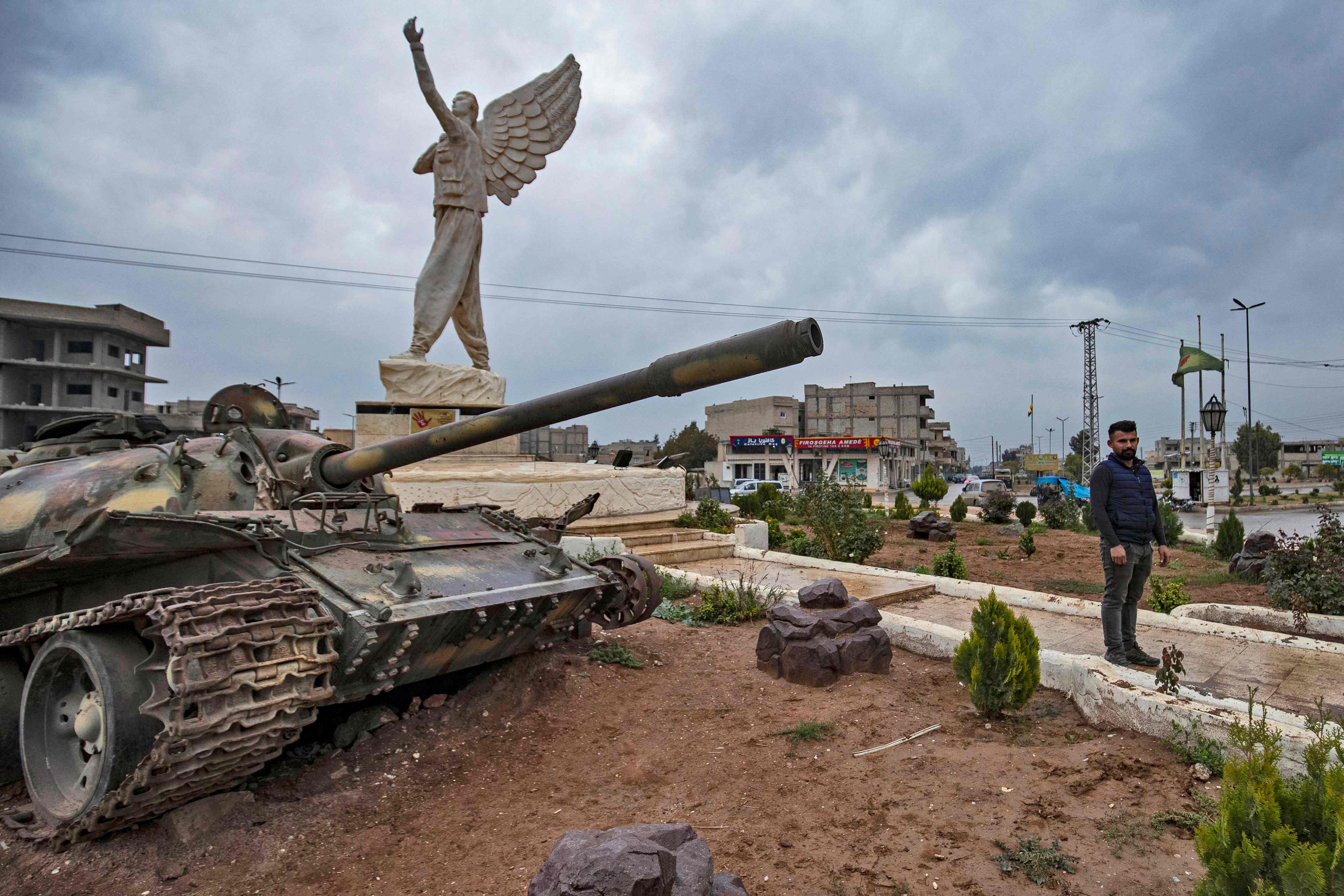I keep being asked one question about Syria
‘Is there still a war on?’ People are dying. Areas are being bombed. The only difference is that no one cares, writes Bel Trew


The most common question I’m asked about Syria these days is “But is there still a war there?” For years, the conflict-ravaged Middle Eastern country dominated the news cycle. The story opened in 2011 with a tantalising explosion of hope and determination in the uprising against the bloody regime of Bashar al-Assad, which matched similar waves of protests in the region.
The revolution disintegrated into a complicated proxy war that sparked what remains the largest humanitarian and development crisis in the world, even if Ukraine is catching up.
Fast-forward more than a decade, and that conflict still grinds on. At least 350,200 people are dead, according to the United Nations’ latest count, although UN officials acknowledge this is a significant undercount of the number of killings. More than 13 million Syrians are displaced either inside or outside the country.
And yet still there has been no resolution to the crisis, no peace process, no safety guaranteed for the refugees outside the country or the returnees forced to go back. It has morphed into an increasingly complex international conflict. People are dying. Areas are being bombed. The only difference is that now, no one cares. It barely makes the news any more, and so people do not realise that the war drags on.
In the last few weeks, Turkey, Israel and Russia have launched air raids on different parts of the country. This illustrates not only that the fighting is far from over, but just how the challenging international dimension to the conflict is only postponing even the meekest hopes of a resolution to the nightmare.
The country is now carved up into three fiefdoms of influence, with Syrian factions beholden to different stakeholders. Turkey actively supports opposition groups and effectively controls a northwestern corner of the country. Ankara has been bombing Kurdish forces who run a northeastern slither backed by US forces, after the US joined the fray as part of its ongoing war against Isis.
Since 2015, Russia has intervened militarily to support the Assad regime, and has forced a kind of pyrrhic victory over the blasted regime-held areas. All the while, Israel has been hitting Iranian targets across the country. And this already-complicated landscape is only looking more bleak since the looming possibility of another Turkish incursion into parts of Syria held by the mostly Kurdish YPG militia.
Ankara has blamed a deadly bomb attack in Istanbul that took place two weeks ago on the YPG, which it sees as an extension of militant group the Kurdistan Workers’ Party (the PKK). The YPG has denied involvement in the bombing, and has responded at times to the cross-border attacks with mortar shelling.
But now, Turkish officials have warned that Ankara’s army needs just a few days to be ready for a ground incursion – something rights groups have warned would be utterly devastating given the destruction that has already taken place in northeastern Syria.
“It won’t take long for the operation to begin,” the Turkish official told Reuters on Monday. “It depends only on the president giving the word.”
To illustrate this point, over the past week, howitzers have been fired daily from Turkey. Warplanes continue to carry out airstrikes. The attacks – particularly those on oil and gas fields and electrical power plants – have resulted in significant power and internet cuts in different towns in northeastern Syria over the last few weeks. There is already a water crisis, partly due to continuous disruption at the Alouk water station, which is the main source for the region. There is also a cholera outbreak, which has caused tens of thousands of infections.
To keep up to speed with all the latest opinions and comment, sign up to our free weekly Voices Dispatches newsletter by clicking here
Alarmed, even Russia has asked Turkey to refrain from a full-scale ground offensive. The United States, meanwhile, has told its Nato partner that it is seriously concerned that an escalation would affect the goal of fighting Isis in Syria.
Mazloum Abdi, the commander of the main US-backed Kurdish-led force in Syria – the SDF (which the YPG is part of) – said on Saturday that his forces have halted operations against Isis because of Turkey’s attacks.
Abdi also warned the BBC last week that the SDF would be forced to abandon camps holding Isis detainees that it has manned as part of the US-led offensive to destroy the global jihadi group. Abdi said Turkish strikes had hit the largest of these makeshift facilities, called al-Hol, which is home to more than 50,000 people, making the task of guarding it impossible.
In short, war is very much still raging in Syria, despite the global spotlight having drifted to other parts of the world. And right now, we are potentially on the cusp of another deadly chapter.






Join our commenting forum
Join thought-provoking conversations, follow other Independent readers and see their replies
Comments